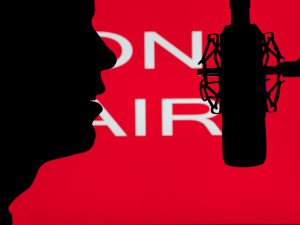10 Communication Tips from the Best Talk Radio Hosts
I have a confession: I’m fascinated with talk radio. (And apparently, I’m not the only one.)
I’m particularly devoted to two shows: “The World Next Week,” by the Council on Foreign Relations, and “The John Williams Show” on our local CBS radio affiliate. They’re “appointment radio/podcasts” for me because they consistently inspire, energize and educate.
How do they do it? In the noisy landscape of hundreds of local, satellite and internet programming options, how do these communicators stand out? I’m especially curious as someone who needs to communicate effectively in my own work. Maybe you are, too.
Here are 10 communication attributes I’ve noticed these and other effective talk radio hosts embody:
- Self-deprecating. John Williams couched a discussion about the Rosetta spacecraft’s challenges in recharging its batteries with this comment: “Hey, I’m not hating on the comet people. I can’t find my keys most days.” People connect more easily with you when you reveal your own personal limitations.
- Uninhibited. How great is it to listen to someone who communicates freely and boldly, without worrying about being judged? Of course you need to be appropriate and respectful, but when you don’t need anything from others (like approval or agreement), you can let it flow. That’s where the humor and joy emanate.
- Provocative. Spoofing current events, reading op-ed pieces, asking thoughtful questions—these are all ways to provoke discomfort combined with awareness. They wake the audience up from their slumber of complacency and push people to reconsider their assumptions.
- Emotive. Moving through the show the other day, Williams landed on one caller talking about the Affordable Care Act who said she’d recently had a stroke. He paused. His co-host sincerely said, “I’m sorry. How are you doing?” Williams consistently puts his emotions out there, from concern to passion, joy to anger, frustration to excitement. You instantly connect because that’s how humans behave. It’s real.
- Individual. Based on their discussions, I could not tell you whether John Williams, Robert McMahon or Jim Lindsay are liberal or conservative. Once you self-categorize, you become predictable, boring and one-dimensional. Have the courage of your convictions, and avoid groupthink.
- Bottom-line. There’s an art to being able to “bottom-line” it without cutting people off, but time and attention are precious. After another caller mused on and on about the strengths and failures of the Affordable Care Act, Williams finally asked directly, “Are you in or out?” The best communicators know when and how to tease out the point.
- Flywheeler. Jim Collins uses the analogy of a giant flywheel to describe the self-perpetuating energy and momentum built by great leaders. The same applies here. There’s a reason these communicators are called “hosts” — they get people talking, inject new perspectives and keep the discussion rolling.
- Promoter. Dale Carnegie wrote, “Make the other person feel important – and do it sincerely.” McMahon and Lindsay, for example, highlight other peoples’ blog posts, introduce people as experts in their field and give people a platform to make their case.
- Assertive. Virtual communication can lead to awkward silence, talking over each other and tentative delivery. When foibles are made, great communicators acknowledge them and move on — like when John Williams called someone the wrong name, swiftly apologized, explained why he made the mistake and was off to the next point.
- Dynamic. Listen to the vocal changes on talk radio: One moment the delivery gets quiet and serious, the next it’s loud and light-hearted. Keep things lively by varying pitch, volume, pacing and inflection. This is even more important when your audience can’t see you.
As I look for ways to avoid blending into the vast sea of chatter we swim in every day, these are just a few of the talk radio communication lessons I’m trying out.
What other communicators do you find are instructive examples of how to do it well?










Comments are closed here.